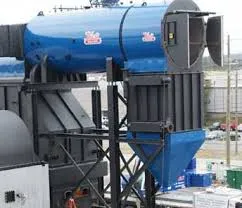Nov . 11, 2024 04:49 Back to list
OEM Cast Silicon Aluminum Heat Exchanger for Residential Heating Boiler Systems
OEM Cast Silicon Aluminum Heat Exchangers for Home Heating Boilers
In the realm of home heating solutions, the efficiency and durability of heat exchangers play a crucial role in maintaining comfortable indoor temperatures while minimizing energy consumption. One innovative solution that has garnered attention in recent years is the OEM cast silicon aluminum heat exchanger, specifically designed for use in home heating boilers. This article delves into the advantages, manufacturing processes, and applications of this advanced technology.
Understanding Heat Exchangers
A heat exchanger is a device that facilitates the transfer of heat between two or more fluids without them coming into direct contact. In home heating systems, these devices are essential for transferring heat from the heating source, such as a boiler, to the water or air that circulates throughout the home. The efficiency of a heat exchanger directly impacts overall system performance, energy usage, and operational costs.
Advantages of Cast Silicon Aluminum Heat Exchangers
1. Superior Thermal Conductivity Silicon aluminum alloys exhibit excellent thermal conductivity properties. This means they can transfer heat more efficiently than traditional materials, leading to improved system performance and reduced energy consumption. Homeowners can benefit from lower utility bills while maintaining a comfortable living environment.
2. Corrosion Resistance One of the significant advantages of silicon aluminum heat exchangers is their resistance to corrosion. Home heating systems often involve water and other fluids that can be corrosive over time. The silicon content in the alloy enhances its resistance to oxidation and corrosion, thereby extending the lifespan of the heat exchanger and reducing maintenance costs.
3. Lightweight and Strong Cast silicon aluminum heat exchangers are not only lightweight but also possess remarkable strength. This combination allows for easier installation and handling, a crucial aspect when integrating them into existing heating systems. Their strength ensures they can withstand the high pressures often found in boiler applications.
4. Customization for Specific Applications OEM (Original Equipment Manufacturer) heat exchangers can be tailored to meet specific requirements of different home heating systems. This customization ensures optimal performance, accommodating various sizes, configurations, and heating capacities.
5. Design Flexibility The casting process for silicon aluminum allows for intricate and complex designs that can enhance heat transfer efficiency. Manufacturers can create fin structures and other design elements that maximize the surface area for heat exchange, further improving efficiency.
Manufacturing Process
oem cast silicon aluminum heat exchanger for home heating boiler

The manufacturing of OEM cast silicon aluminum heat exchangers typically involves several steps.
1. Material Selection High-quality silicon aluminum alloys are selected based on the required properties, such as thermal conductivity, strength, and corrosion resistance.
2. Molding The alloy is melted and poured into precise molds to form the heat exchanger components. This process allows for the creation of complex geometries that maximize heat transfer.
3. Cooling and Finishing Once the components have cooled and solidified, they undergo various finishing processes, including machining and surface treatments to enhance performance and appearance.
4. Quality Control Rigorous testing is conducted to ensure that each heat exchanger meets the required standards for performance, durability, and safety.
5. Assembly and Distribution Once verified for quality, the heat exchangers are assembled into complete units and prepared for distribution to OEMs for installation in home heating systems.
Applications in Home Heating Systems
Cast silicon aluminum heat exchangers find applications in various types of home heating systems, including
- Boilers They are extensively used in both gas and oil-fired boilers, where reliability and efficiency are paramount. - Radiant Heating Systems In radiant floor heating applications, these heat exchangers provide optimal heat transfer, ensuring even heating throughout the home. - Heat Pumps In combination with heat pumps, they can enhance the efficiency of heating systems, providing sustainable and energy-efficient heating solutions.
Conclusion
In summary, OEM cast silicon aluminum heat exchangers represent a significant advancement in home heating technology. With their superior thermal conductivity, resistance to corrosion, and customization capabilities, they are set to enhance the efficiency and longevity of home heating systems. As homeowners increasingly seek more efficient and cost-effective heating solutions, these advanced heat exchangers will play an essential role in meeting those demands while contributing to a greener future. Investing in such technology not only ensures comfort but also reflects a commitment to sustainability in home heating practices.
-
Premium Cast Iron Water Main Pipe for Robust Infrastructure
NewsAug.27,2025
-
A-Rated Cast Aluminum Boilers: High-Efficiency Condensing Gas & LPG
NewsAug.26,2025
-
OEM Cast Silicon Aluminum Alloy Heat Exchanger | Custom & High Performance
NewsAug.25,2025
-
Centrifugally Cast Iron Water Main Pipe | Ductile Iron Solutions
NewsAug.24,2025
-
Durable Cast Steel Concrete Pipe Mold Bottom Rings & Base Trays
NewsAug.23,2025
-
Centrifugally Cast Iron Water Main Pipe for Reliable Mains
NewsAug.22,2025


